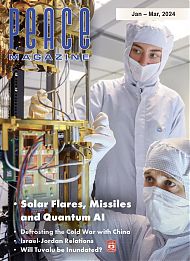In 2016 almost all countries accepted the so-called ‘Paris Agreement’ which called on them to meet every five years and confront their ‘report card’ a two-year-long appraisal of their success in solving the climate crisis. The report is supposed to inform the countries’ decisions and bind them to a plan of action. This year some 70,000 people attended the ‘Conference of Parties’ (COP 28) in Dubai, UAE for this “Global Stockade.” How good were the marks? Was the grading done fairly? Let’s review some of the comments in our email.
Nobody seems to be bragging of success except maybe the president of this year’s COP meeting, Sultan Ahmed Al Jaber, the Minister of Industry and Advanced Technology and UAE’s Special Envoy for Climate Change. This COP was held in a petro state whose leading fox hosted the guests in the state’s henhouse. (Al Jaber is also the head of an oil company.)
TABOO WORDS
What did we expect? The words “fossil fuel” have always been taboo in a COP document. Al Jaber had been caught claiming that there is “no science” behind the idea that fossil fuels must be phased out in order to keep average global temperatures from rising above 1.5 degrees Celsius. At previous meetings, the final document could promote the “reduction of greenhouse gas emissions” but not the rapid phasing out of fossil fuel’ the source of those emissions.
That phrase, “rapid phasing out,” was the most contentious issue of this year’s meeting. In the sole breakthrough, the final statement mentioned the words “fossil fuel” for the first time, though not to be “rapidly phased out” but only “transitioned away from.”
That phraseology might be fine if the countries were actually reducing greenhouse gas emissions, the chief proximate cause of global warming. However, global energy-related CO2 emissions grew again in 2022 by 0.9%, reaching a new high of more than 36.8 billion tones.
It is no longer possible to limit global warming to 1.5 degrees Celsius. The earth’s energy imbalance has almost doubled in the past decade. We were close to 1.5 degrees for the entire year 2023 and climatologist Paul Beckwith says, “We are rapidly approaching 2.0. This is an emergency.” He speculates: If you had a life-threatening lung disease, would your doctor advise you to ‘transition away’ from smoking?
Dr. Peter Carter, a physician and director of the Climate Emergency Institute, said that the first way to reduce global warming is “obviously to stop the $7 trillion in fossil fuel subsidies a year. Those subsidies, by the way, have been going up. Imagine if we took away all those subsidies. The market would immediately swing out of fossil fuels to renewable energy and that would make an immediate impact on CO2 emissions. Last year for the first time, the IMF modeled what would happen if the subsidies were terminated. And it was a major, major difference Ð a huge drop in CO2 emissions and atmospheric CO2.”
A FUTURE FOR COAL?
Carter worries about a particular clause in the COP 28 consensus statement referring to coal. He noted, “It made it very clear that coal was not to be phased down or stopped. The statement on coal was the strongest support that I can remember. That’s absolutely terrible.”
Some comments about COP 28 seem ambivalent. For example, Mark Watts is the managing director of C40 Cities, a global network of mayors of the world’s leading cities that are acting together to confront the climate crisis.
In a blog, Watts called the reference to transitioning away from fossil fuels ‘progress,’ though he added, “but it is not progress at anywhere near the speed and scale the crisis demands. This is no time for small, incremental steps.”
Watts was pleased by one noticeable development in Dubai: mayors of cities were allowed to participate, as well as national delegates. C40 urges a “structuring of COP that takes subnational climate action on board; 75 percent of C40 cities are reducing emissions faster than their respective national governments.”
Azerbaijan will be host of COP29 from 11-22 November 2024, and Brazil will be COP30 host from 10-21 November 2025. The next two years will be critical. At COP29, governments must establish a new climate finance goal, reflecting the scale and urgency of the climate challenge.



